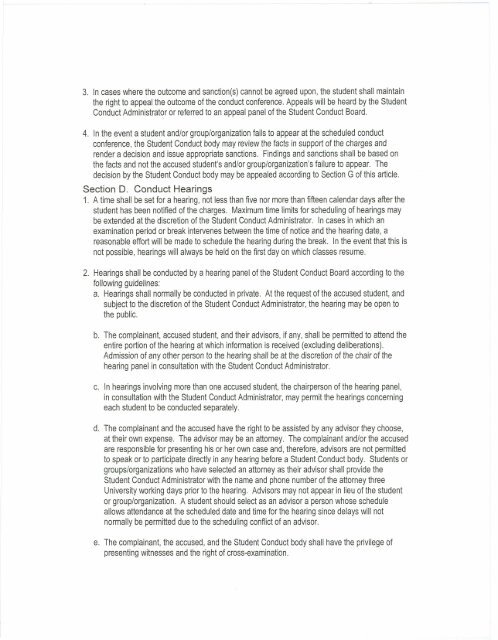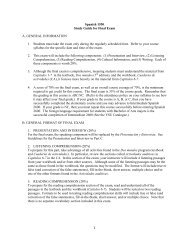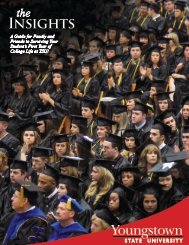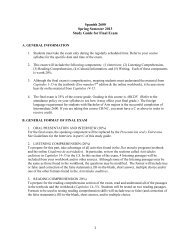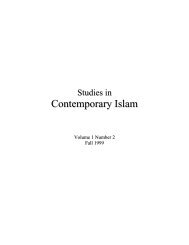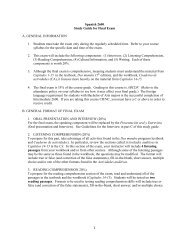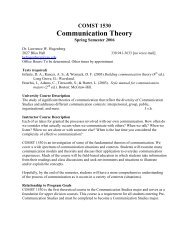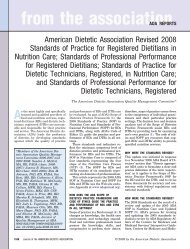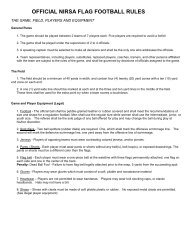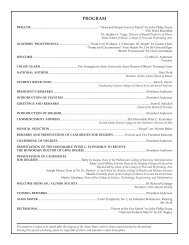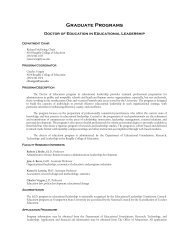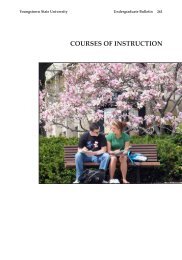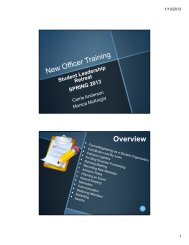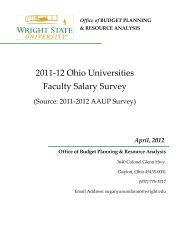September 29, 2006 - YSU - Youngstown State University
September 29, 2006 - YSU - Youngstown State University
September 29, 2006 - YSU - Youngstown State University
Create successful ePaper yourself
Turn your PDF publications into a flip-book with our unique Google optimized e-Paper software.
3. In cases where the outcome and sanction(s) cannot be agreed upon, the student shall maintain<br />
the right to appeal the outcome of the conduct conference. Appeals will be heard by the Student<br />
Conduct Administrator or referred to an appeal panel of the Student Conduct Board.<br />
4. In the event a student and/or grouplorganization fails to appear at the scheduled conduct<br />
conference, the Student Conduct body may review the facts in support of the charges and<br />
render a decision and issue appropriate sanctions. Findings and sanctions shall be based on<br />
the facts and not the accused student's and/or group/organization's failure to appear. The<br />
decision by the Student Conduct body may be appealed according to Section G of this article.<br />
Section D. Conduct Hearings<br />
1. A time shall be set for a hearing, not less than five nor more than fifteen calendar days after the<br />
student has been notified of the charges. Maximum time limits for scheduling of hearings may<br />
be extended at the discretion of the Student Conduct Administrator. In cases in which an<br />
examination period or break intervenes between the time of notice and the hearing date, a<br />
reasonable effort will be made to schedule the hearing during the break. In the event that this is<br />
not possible, hearings will always be held on the first day on which classes resume.<br />
A. Hearings shall be conducted by a hearing panel of the Student Conduct Board according to the<br />
following guidelines:<br />
a. Hearings shall normally be conducted in private. At the request of the accused student, and<br />
subject to the discretion of the Student Conduct Administrator, the hearing may be open to<br />
the public.<br />
b. The complainant, accused student, and their advisors, if any, shall be permitted to attend the<br />
entire portion of the hearing at which information is received (excluding deliberations).<br />
Admission of any other person to the hearing shall be at the discretion of the chair of the<br />
hearing panel in consultation with the Student Conduct Administrator.<br />
c. In hearings involving more than one accused student, the chairperson of the hearing panel,<br />
in consultation with the Student Conduct Administrator, may permit the hearings concerning<br />
each student to be conducted separately.<br />
d. The complainant and the accused have the right to be assisted by any advisor they choose,<br />
at their own expense. The advisor may be an attorney. The complainant andlor the accused<br />
are responsible for presenting his or her own case and, therefore, advisors are not permitted<br />
to speak or to participate directly in any hearing before a Student Conduct body. Students or<br />
groups/organizations who have selected an attorney as their advisor shall provide the<br />
Student Conduct Administrator with the name and phone number of the attorney three<br />
<strong>University</strong> working days prior to the hearing. Advisors may not appear in lieu of the student<br />
or grouplorganization. A student should select as an advisor a person whose schedule<br />
allows attendance at the scheduled date and time for the hearing since delays will not<br />
normally be permitted due to the scheduling conflict of an advisor.<br />
e. The complainant, the accused, and the Student Conduct body shall have the privilege of<br />
presenting witnesses and the right of cross-examination.


